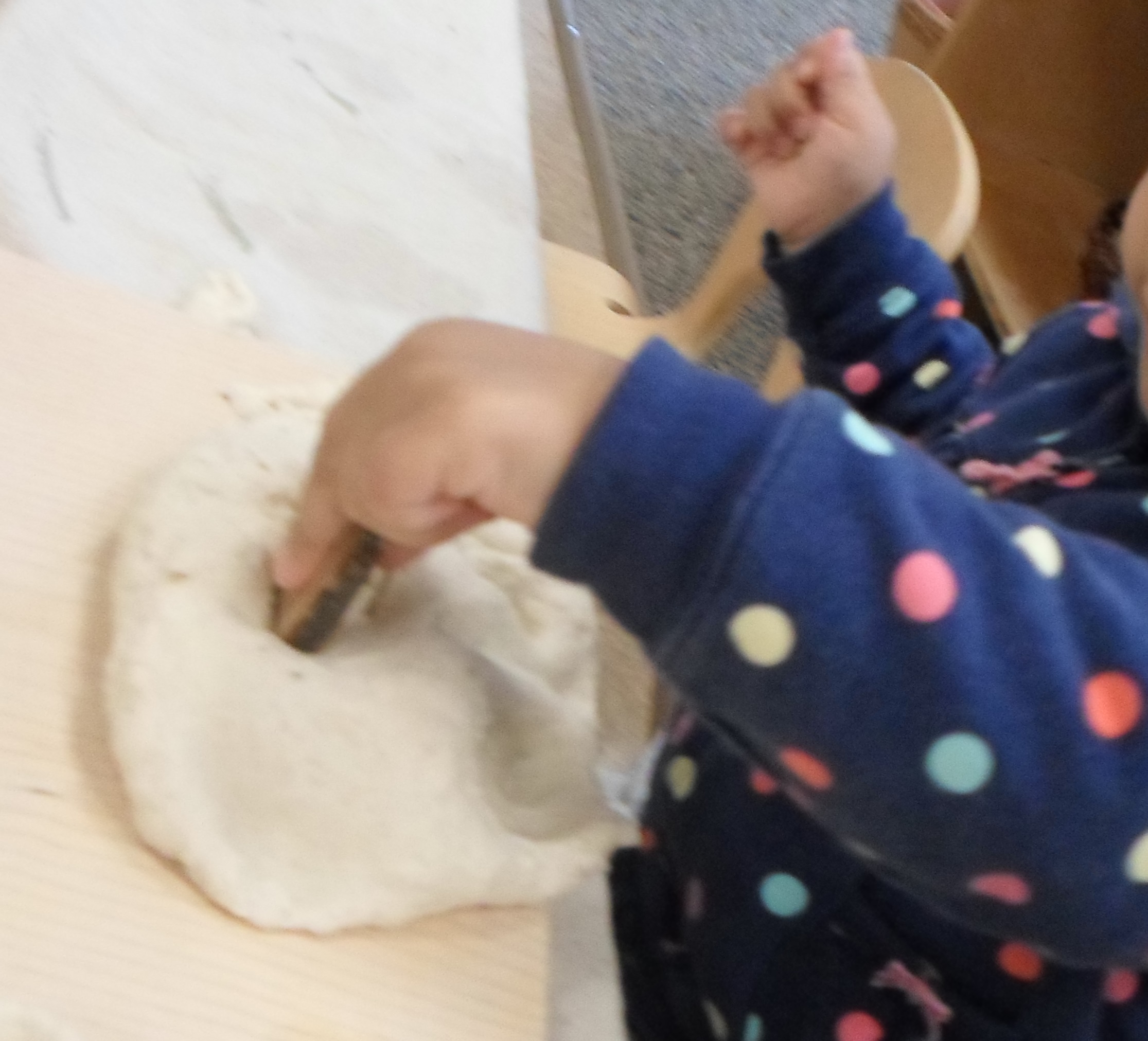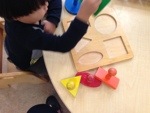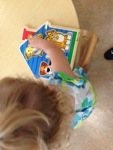Playdough and natural materials were brought out the first week of October for the children to explore.The children used sea shells to make prints and rocks to squish the playdough. Here’s a recipe we use to make our playdough that I found on this site: http://notjustcute.com/2012/11/06/playdough-recipe-an-old-favorite-with-a-new-twist/
Patting, banging, Squishing, cutting, pinching, and poking the playdough
exercise the muscles in their fingers which helps when children begin to hold a
pencil for writing or tying their shoes.
Playdough (like other sensory activities) can be soothing for children.
It also, keeps children involved for longer periods of time, helping with their
attention span.







